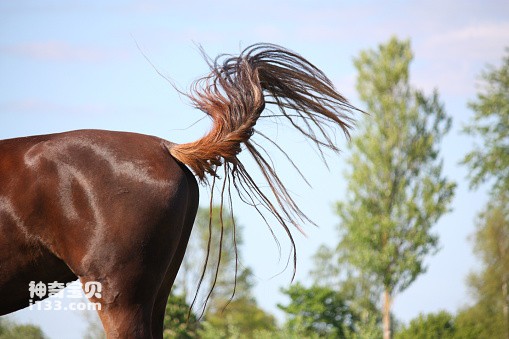rayscale: ; --tw-hue-rotate: ; --tw-invert: ; --tw-saturate: ; --tw-sepia: ; --tw-drop-shadow: ; --tw-backdrop-blur: ; --tw-backdrop-brightness: ; --tw-backdrop-contrast: ; --tw-backdrop-grayscale: ; --tw-backdrop-hue-rotate: ; --tw-backdrop-invert: ; --tw-backdrop-opacity: ; --tw-backdrop-saturate: ; --tw-backdrop-sepia: ; margin-top: 0px; margin-bottom: 1.25em; overflow-wrap: break-word; white-space: pre-wrap; color: rgb(20, 23, 24); font-family: __Karla_555e8b, __Karla_Fallback_555e8b, ui-sans-serif, system-ui, -apple-system, BlinkMacSystemFont, "segoe ui", Roboto, "helvetica neue", Arial, "noto sans", sans-serif, "apple color emoji", "segoe ui emoji", "segoe ui symbol", "noto color emoji"; letter-spacing: -0.16px; background-color: rgb(243, 245, 247);">The horse's tail is the part of the rear end of the horse's body that has a unique shape and function. Here is a detailed description of a horse's tail:
rayscale: ; --tw-hue-rotate: ; --tw-invert: ; --tw-saturate: ; --tw-sepia: ; --tw-drop-shadow: ; --tw-backdrop-blur: ; --tw-backdrop-brightness: ; --tw-backdrop-contrast: ; --tw-backdrop-grayscale: ; --tw-backdrop-hue-rotate: ; --tw-backdrop-invert: ; --tw-backdrop-opacity: ; --tw-backdrop-saturate: ; --tw-backdrop-sepia: ; margin-top: 0px; margin-bottom: 1.25em; overflow-wrap: break-word; white-space: pre-wrap; color: rgb(20, 23, 24); font-family: __Karla_555e8b, __Karla_Fallback_555e8b, ui-sans-serif, system-ui, -apple-system, BlinkMacSystemFont, "segoe ui", Roboto, "helvetica neue", Arial, "noto sans", sans-serif, "apple color emoji", "segoe ui emoji", "segoe ui symbol", "noto color emoji"; letter-spacing: -0.16px; background-color: rgb(243, 245, 247);">
Long and bushy:
A horse's tail is usually long, thick and shiny, and covered with dense horse hair.
Hair color:
The hair color of a horse's tail usually matches the color of its body, but there may be some variations such as mixed or heterochromatic colors.
End of tail:
The end of a horse's tail may have different shapes; some may have a flush end, while others may have short or hairy tips.
The main functions of horse tail:
One of the main functions of a horse's tail is to repel and repel insects, such as flies and mosquitoes, and to protect the horse's body surface from insect bites.
Convey emotions:
A horse's tail can also convey emotions and signals. For example, when it vibrates or is raised high it may indicate excitement or alertness, while when it hangs down or is close to the body it may indicate fatigue or calmness.
Aesthetic effect:
In equestrian competitions and performances, the appearance and posture of the horse's tail is also regarded as a graceful decoration, reflecting the horse's elegance and strength.
Friesian Horse:
A trailing horse is a breed of horse with a long, bushy tail that is carefully cared for and trimmed, showing beautiful lines and luster.
Tail differences among horse breeds:
Different breeds of horses sometimes have some differences in tail length, thickness and shape. For example, the tail of an Arabian horse is usually held high and swaggering.
Overall, a horse's tail plays an important role in a horse's life, not only to protect the horse's body from insect bites but also to convey emotions and display aesthetic appeal. Each horse's tail has its own unique appearance and function, making it an integral part of these elegant animals.
animal tags: horse
We created this article in conjunction with AI technology, then made sure it was fact-checked and edited by a Animals Top editor.